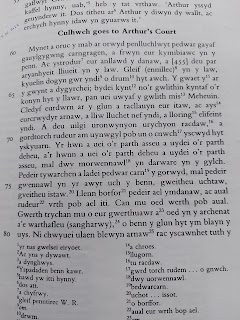Three reasons why you should read David McCooey’s poetry.
(This review originally appeared in The Brazen Head, September 2023)
David McCooey, The Book of Falling. Perth, Western Australia, Upswell Publishing, 2023. 109 pages. $24.99 (AUS)
The Book of Falling is David McCooey’s fifth collection of poems, and if nothing else, gives the lie to the invidious myth that people who work on academic writing programs can’t write.
1) He’s very good at what he does. His poetry evokes Bunting’s praise of Scarlatti:
It is now time to consider how Domenico Scarlatti
condensed so much music into so few bars
with never a crabbed turn or congested cadence
never a boast or a see-here,
Every well-chosen word in its place, and each word doing the necessary work. In the first four lines of the collection, a sense of vague but threatening menace is swiftly evoked:
The unseen night creatures -scaled and feathered
for their occult ceremonies-rasp and call outside
in the dark beyond the half dark that
surrounds this marbled, half lit house
(Questions of Travel)
This deft verbal economy is a feature of the wide variety of poems that appear in The Book of Falling and plays against often surprising content. The first three poems are conventional poetic monologues as though the poet were setting out his stall and proving his ability. At the same time the subjects are anything but conventional. Elizabeth Bishop packs to travel; Sylvia Plath looks at her life on her 80th Birthday; Marilyn Munroe divines the future and amongst other things, ‘…see[s] who will be forgotten first/ Queen Elizabeth, Molly Bloom, or me.’
These are followed by word play, short sequences about family, a group of satires and elegies, poems about urban life, as well as ‘Three Photo Poems.’ The latter a new genre to me: three sequences which juxtapose very short texts (one of the sequences is made up of ‘found poems’) and photographs.
The juxtaposition of pictures, either of the mundane, as in the sequence about bathrooms, or the family photographs which on closer inspection look anything but mundane, with short pieces of text, lead to the second reason you should read the book.
2) Variety.
On a first reading you can never tell what’s going to be on the next page. This is a defining characteristic of the other two books of McCooey’s poetry I have read and unusual in single author collections where formal and thematic similarities tend to be on almost every page. The variety here is held together by a unified view of the world, a laconic wit, which takes pleasure in the commonplace while recognising how strange it is.
Rain Poem.
And as if someone uttered the trigger word
rain begins without ceremony.
But it’s not ‘driving rain’;
it’s just sitting outside
engine idling over the neighbourhood.
The poem could stop there, but it turns into something more than a pun and a neatly turned image.
It doesn’t give a damn
And then, like a poem ending
you look out the window
and the rain has stopped.
The birds have returned and the wind
has begun its invisible cover-up job.
Many of the poems present the everyday and familiar but altering the point of view just enough to destabilise the way you’re used to looking at the world. Freud’s Uncanny perhaps, without the baggage attached to that word.
When was the last time you thought about how strange bathrooms are? ‘Bathroom Abstraction #3’ begins: ‘Windowless bathrooms are the cave of modernity’.
What you encounter as reader is an intelligence moving through time, and recording the variety of experience, taking interest and pleasure in the world . And above all wanting to share it with the reader. There are numerous single author collections where the reader is left feeling his or her presence is not required. Or perhaps only required as an anonymous cheerleader who proved their devotion by buying the book.
If a poem can be a space for thinking through and in language, McCooey’s poems invite readers to look without telling them what to think. A short example:
Australia
Dropping my son at school.
It is ‘Art Day’;
students are to dress up
as their favourite artist.
I see a kid dressed in white.
He has sunscreen on his nose,
And carries a cricket bat.
Both bemused and amusing, but open to different ways of being read. The traditional art community criticism of Australian attitudes towards ‘the arts’ in a sports mad country; a criticism of the arts community’s failure to penetrate the education system even on a school day ostensibly devoted to ‘Art’; or a wry celebration of the artistry of Australian cricketers, who can flog a rock like ball a long distance with enough balletic grace to suggest cricket is indeed an art form. The poem holds all these possibilities (and others) open for the reader.
And finally. This may be a heretical comment: poetry is a highly sophisticated form of entertainment. It provides unique pleasures. Reading book reviews, it can seem that enjoying poetry is a subversive activity. The reviewer usually makes great claims for its importance, significance, ground-breaking genre-bending, appropriate ideological stance on the burning issues of the day but rarely admits to having enjoyed reading the book under review.
3) McCooey’s books are skilfully written, varied, thought provoking, and above all enjoyable. You should read them.



